Compassion International: How Much Money Goes to the Child?

When you give to Compassion International, how much money goes to the child you sponsor? Learn how your monthly donation is used to care for a child living in poverty.
Continue Reading ›Is Compassion International Trustworthy?

Is Compassion International trustworthy? Compassion has been a trusted Christian charity since 1952. Learn more about Compassion and our stewardship.
Continue Reading ›
What Impact Does Giving a Family Gift Have in a Child’s Life?
After his accident, Biswanath lost all his expectations for life. He couldn’t find a job due to his weak leg. He struggled to provide for his family and began selling marijuana. The dark side of life grabbed him.

You Asked, We Answered: Facebook Q&A
We recently held our first impromptu Facebook Q&A Session. All your questions answered in one place on one spontaneous Friday afternoon. Here are some of the most popular questions – and a few of our favorites.

What to Expect from the Letters From the Child You Sponsor
Working in the Compassion USA Contact Center, I get the opportunity to help answer the questions of Compassion sponsors over the phone, via email, or online about the children they sponsor. And often there are questions about the letters sponsors receive from them.
Building a relationship through letter writing is one of the most important things you can do to offer hope to the child you sponsor. So here are a few of the questions I get from time to time. Hopefully, they’ll help you know a little about what to expect from the letters you receive while you are building that fruitful relationship.
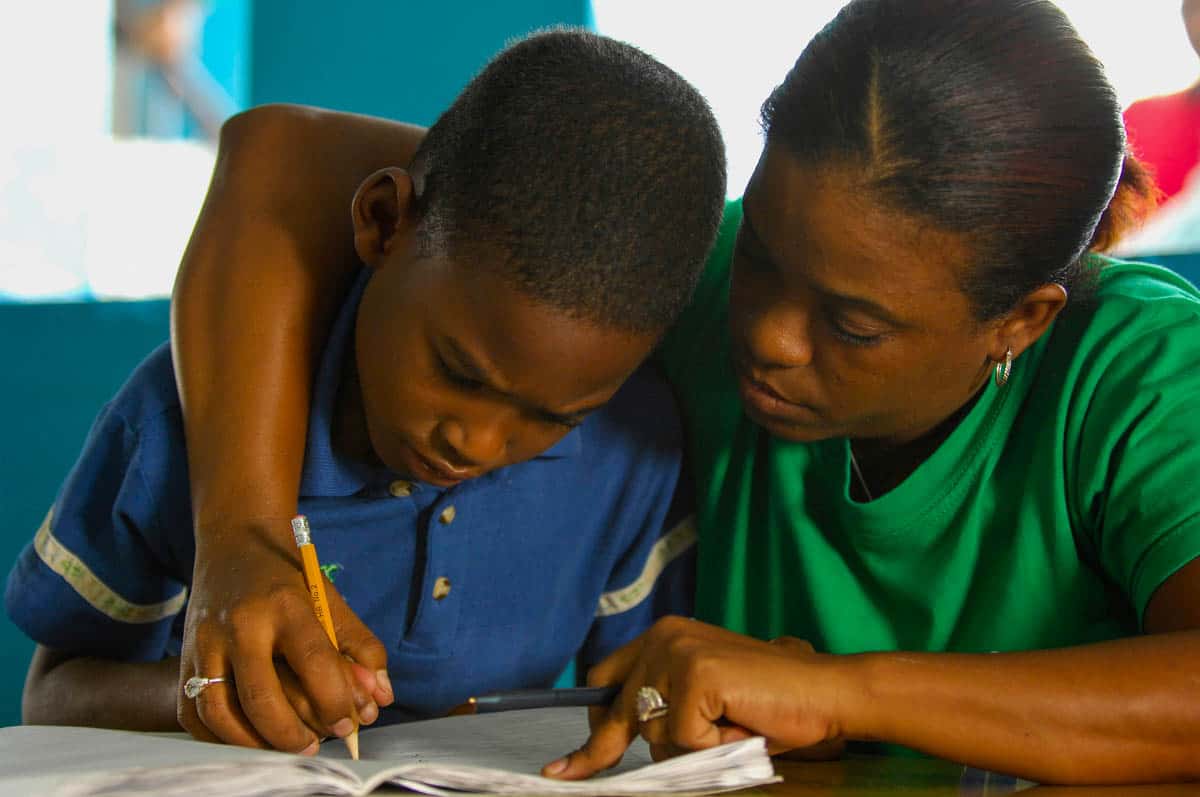
Why can’t he read or write yet?
A few weeks ago, I talked with Roberta* who sponsors a 10-year-old boy in Burkina Faso. Roberta was confused about why the boy she sponsored was not yet able to write letters on his own and why he had to have a tutor dictate each letter for him. She felt that he should be able to write his own letters by now and thought there must be something amiss.
I explained to Roberta that, in some cases, children are not able to start school until they are registered in the Compassion program, which could be as late as age 9. School systems may also look very different there. We think of 9-year-old children in the U.S. as having at least three years of schooling and reading and writing skills. But some of the children in Compassion’s programs are just learning literacy at age 9, and many parents are also illiterate, giving their children few role models.
Sometimes we simply do not realize the incredible challenges that the children we sponsor in impoverished communities face as they seek to escape from extreme poverty. This might cause us to expect things from them that they really are not able to give to us.
Why hasn’t he answered my questions?
In many cases, when a child receives a letter from his sponsor, he takes it home to show his family, and then saves it in a “special place” because he is SO proud to have a letter! If this is the case, you might wonder why Jose has not answered you when you asked him what his favorite color was.
Letters are often written as part of a class exercise so staff can provide adequate help and attention to individual children as they write their letters. Several weeks after Jose received your letter, the staff at the student center would have scheduled a time for all the children to write letters to their sponsors. Jose may not have had the last letter with him and may not have remembered the questions you asked.
This is why if you underline or highlight your questions, the staff will copy down these questions and make sure that your children are able to answer them.
Most children in from under-resourced communities cannot imagine why anyone would be interested in how tall they are or how much they weigh. Many cultures are much more private about that type of information and children might not think that the sponsor really wants to know such information. Also, it may be considered vain to be discussing personal things about themselves.
Why isn’t there more depth in her letters?
I don’t know about you, but I can remember that as a child in school, when my teachers asked me to write thank-you letters to adults, my letters were a bit shaky. Actually, my letters probably sounded rather distant and formal. Part of that was due to the fact that I had absolutely no idea what to say to these adults, and how to say thank you for whatever they had done for me and my class at school. As I had more practice in writing letters, I know they got better and sounded less formal, forced and aloof.
Along the same lines, cultural differences may cause the letters from the child you sponsor to seem excessively pious or religious. For example, in Uganda, it is common to begin a letter with “Praise God!”
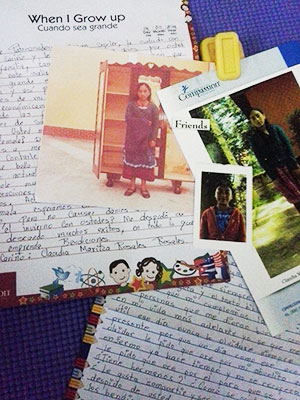 In many cases, a child’s personality will come through in his or her letters. If they are more outgoing, they might be little chatterboxes in their letters. If they are shy, maybe they will have more trouble sharing personal information than other children. In the same way, some children are more comfortable discussing their faith than others.
In many cases, a child’s personality will come through in his or her letters. If they are more outgoing, they might be little chatterboxes in their letters. If they are shy, maybe they will have more trouble sharing personal information than other children. In the same way, some children are more comfortable discussing their faith than others.
About four years ago, I started sponsoring a beautiful young lady named Claudia.
Little did I know, before I had sponsored Claudia, she had been sponsored by someone else. Compassion’s sponsorship program is a one-to-one sponsorship program, but sometimes sponsors come and go over the course of a child going through our program. So sweet Claudia had already been through the experience of being sponsored for four years by someone else with whom she wrote letters back and forth.
Then one day, for one reason or another, the sponsor stopped sponsoring Claudia. No wonder our relationship started off a bit distantly! Was she afraid to connect too much with me only to see me go again? I’m not sure. All I know is that it took a few years of sending faithful and loving letters of encouragement before Claudia started to open up to me a little in her letters.
Why doesn’t she tell me more about the Compassion program?
A while back, I had a tough conversation with another sponsor named Jerry.* He was frustrated with something in the letters he was receiving, or rather what was lacking. Over the course of our conversation, it became clear that Jerry had expected the letters to prove that his money was getting to where it was supposed to be, and that Compassion was operating above board. For whatever reason, the letters from the child he sponsored were not communicating that to him, and I would argue that they never could.
The child or teen you sponsor will not always be able to communicate what your sponsorship has meant to him or her and that your money is going a long way to lift he or she out of poverty. They may not have a high enough vocabulary yet to be able to communicate the significant changes they are experiencing. They may not even realize that they receive “support,” because the benefits of the program are given through their local church in the form of goods and services and not cash.
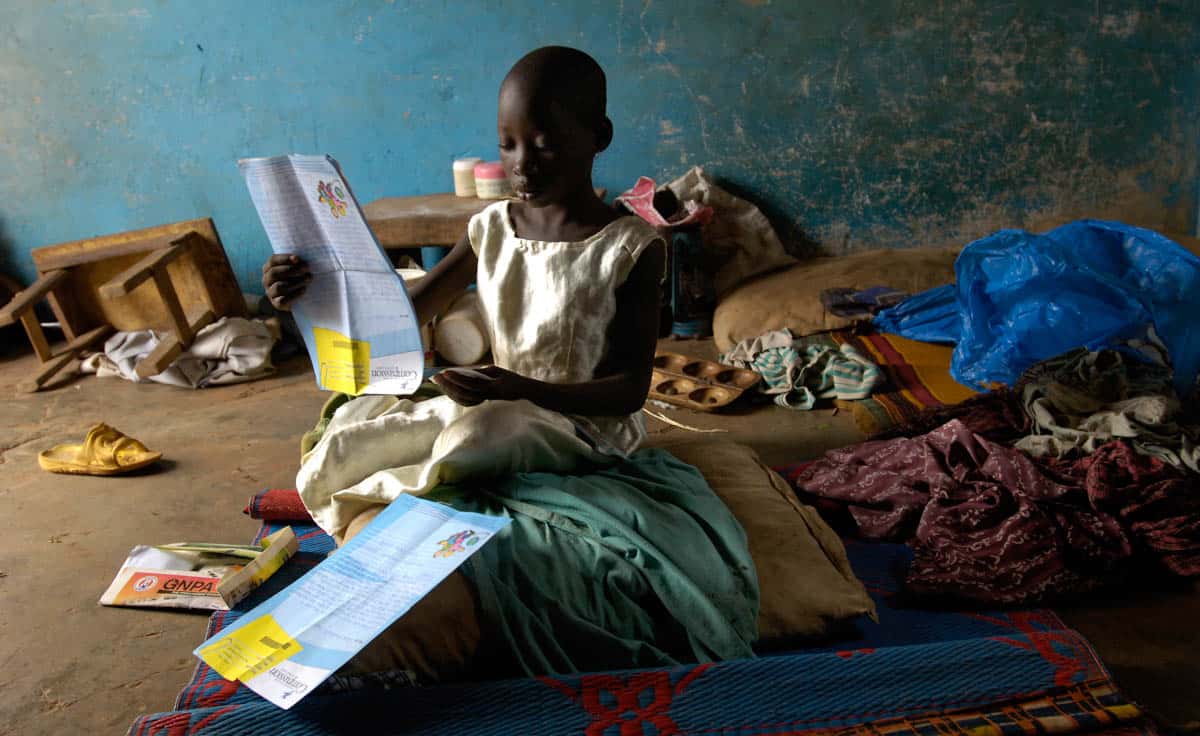
What do my letters mean?
My prayer is that you would see letter writing as a mentoring relationship. Your consistent letters of encouragement will communicate to your child, “I care about you and I want to be a part of your life.” There is power in that.
I can tell you that I have been blessed by God through my decision to be a sponsor; completely separate from anything that Claudia herself could ever give to me. Sure, it has been an absolute joy hearing her sweet jokes in her letters, her wisdom expressed, and watching her grow. I have had the amazing honor of being a part of Claudia’s growing years by loving and encouraging her through the ages of 12 to 16. She’s changed so much, and I love that I get to be a part of that!
This has all been an added blessing that could not be coaxed out of her. It is the same way that Christ gave to me. He did not love me because I would love Him back. No, while I was still lost in my sin, Christ died for me. I love and give to Claudia out of this same grace that I have experienced – without an expectation of what she will give back to me. What I do get back is an extra grace, an unexpected blessing.
*Name changed for privacy
Have more questions about the letter-writing process? Leave a comment below.

Giving a Gift to the Child You Sponsor: The Whys, Whats and Hows
You have a few different options for sending a monetary gift. Each year, you can send $10 to $50 as a birthday gift, $10 to $50 as a general gift, and $25 to $1,000 as a family gift. You also have the option of donating any amount, we typically suggest $20, to the Christmas Gift Program on your sponsored child’s behalf.
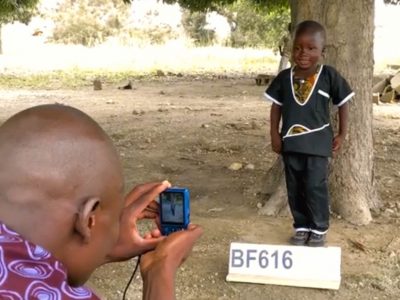
Your Sponsored Child’s Photo: What Does It Tell You?
I’ve taken many calls from sponsors about the pictures of the children they sponsor. “Why is he wearing such nice clothing?” “Why is she not smiling?” “His newest picture doesn’t look like the boy I sponsored. Why?”
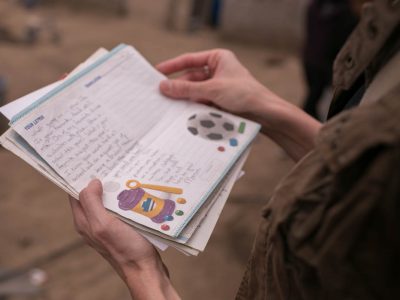
Why Do My Sponsored Child’s Letters Seem So Impersonal?
Questions about letter writing are the most common ones I hear in the contact center. Many sponsors call or write us because they are frustrated with the quality of the letters they receive from their sponsored children.
A few days ago, I spoke with Judy because she was upset that her sponsored child, Carlos, doesn’t answer the questions she asks in her letters. She was also frustrated because she had just received a letter wishing her a “Merry Christmas” … in June!

Out of the Mouths of Babes
“A child in Indonesia wanted to know if people in Canada had hair on their feet to protect them from the cold.” Another child asked, “Is math the same in every country?”

What Teenagers Learn and Share
We recently met several wonderful teenagers in Ouagadougou, Burkina Faso. In the time we spent with them, they shared what they have learned at their child development centers.

“What’s the One Thing You’d Like Your Sponsor to Know?”
Sponsored children reflect their commitment to God no matter the circumstances around them. As they share their lives with you, they are encouraged by your response to them through your letters and prayers.

What Would You Ask God?
If you could ask God anything — absolutely anything — what would it be? Sponsored children sit down with us and share their questions for God.


